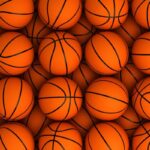In the world of athletics, athletes often hear the phrase “you are what you eat.” This rings especially true when it comes to sports nutrition. Whether you’re a professional athlete or just someone looking to boost your performance at the gym, what you fuel your body with can make all the difference. Sports nutrition isn’t just about eating healthy—it’s about consuming the right nutrients at the right times to optimize energy, recovery, and overall athletic performance. So, what’s the secret to dialing in your nutrition for success?
What is Sports Nutrition?
Sports nutrition is the specialized practice of feeding the body the nutrients it needs to perform well during physical activities. It focuses on optimizing energy production, enhancing endurance, promoting recovery, and supporting muscle growth. In short, it’s the science behind eating to perform at your best. By incorporating well-balanced meals, the right supplements, and proper hydration into your routine, you can ensure that your body is ready for whatever challenges come your way.
Why is Sports Nutrition Important?
Proper nutrition is essential to an athlete’s success. Here are a few key reasons why sports nutrition matters:
- Energy Levels: The right nutrition fuels your workouts. Carbohydrates, proteins, and fats each play distinct roles in maintaining energy and endurance.
- Recovery: After strenuous activity, your body needs to rebuild muscle and restore glycogen stores. A balanced post-workout meal helps speed up recovery.
- Performance Enhancement: Adequate nutrition can mean the difference between hitting a new personal record or falling short.
- Injury Prevention: With the right nutrients, your body is more resilient to injuries, thanks to stronger muscles and faster recovery times.
- Weight Management: Tailored nutrition helps athletes maintain their optimal weight, which plays a crucial role in performance.
Key Components of Sports Nutrition:
- Carbohydrates: Often called the body’s primary energy source, carbohydrates should form the base of any athlete’s diet. They provide the fuel your muscles need to perform sustained, high-intensity exercises.
- Simple vs. Complex Carbs: Simple carbs like sugar provide quick energy, while complex carbs from foods like whole grains and vegetables offer long-lasting energy.
- Pre-Workout Fuel: Focus on consuming complex carbohydrates before a workout to ensure a steady release of energy.
- Proteins: The building blocks of muscles, proteins are essential for repair and recovery. After a workout, protein intake helps repair damaged muscle fibers, leading to growth and strength gains.
- Complete Proteins: Foods like eggs, chicken, and fish are rich in complete proteins, which contain all the essential amino acids your body needs.
- Post-Workout: Consuming a protein-rich meal or shake post-workout can expedite recovery and muscle synthesis.
- Fats: Contrary to popular belief, fats aren’t the enemy. They are essential for sustained energy during low-to-moderate intensity activities. Healthy fats also support brain function and the absorption of fat-soluble vitamins.
- Healthy Fats: Include sources like avocados, nuts, seeds, and fatty fish like salmon to get your dose of heart-healthy fats.
- Hydration: Often overlooked, hydration is crucial in sports nutrition. Even mild dehydration can significantly impair performance and recovery.
- Electrolytes: During intense exercise, you lose more than just water. Replenishing electrolytes like sodium, potassium, and magnesium is key to avoiding cramping and maintaining energy levels.
- Water Intake: Aim to stay hydrated throughout the day, not just during exercise. Drinking water consistently is vital for proper muscle function and endurance.
Supplements in Sports Nutrition:
Supplements can be a great addition to an athlete’s diet when used correctly. While food should always come first, certain supplements can boost performance and recovery.
- Protein Powders: If you find it hard to consume enough protein through food alone, protein powders like whey or plant-based options can fill the gap.
- BCAAs (Branched-Chain Amino Acids): BCAAs are often used by athletes to reduce muscle soreness and speed up recovery post-workout.
- Creatine: Known to improve strength and muscle mass, creatine is a popular supplement for those engaging in high-intensity, short-duration exercises like weightlifting or sprinting.
- Electrolyte Supplements: During long endurance activities like marathons, electrolyte supplements help replenish what’s lost through sweat.
Best Foods for Sports Nutrition:
Here’s a breakdown of what your plate should look like before and after workouts:
- Pre-Workout Meal:
- Whole grain toast with peanut butter and banana slices.
- Greek yogurt with berries and a drizzle of honey.
- Oatmeal topped with nuts and dried fruits.
- Post-Workout Meal:
- Grilled chicken with quinoa and steamed broccoli.
- Salmon with sweet potato and a side of spinach.
- Smoothie made with protein powder, almond milk, spinach, and frozen berries.
Timing Your Meals: Meal timing can be just as important as meal content for athletes. Here’s a rough guideline:
- Pre-Workout: Eat a meal rich in complex carbohydrates 2-3 hours before your workout. For a quick energy boost, a small snack like a banana or energy bar 30 minutes before can be helpful.
- Post-Workout: Aim to refuel within 30 minutes to an hour after exercising. This window is when your muscles are most receptive to nutrients, making it an ideal time for protein and carbs.
Common Sports Nutrition Mistakes to Avoid:
- Skipping Meals: Skipping meals can leave you low on energy and impair performance. Always eat balanced meals throughout the day.
- Not Hydrating Enough: Waiting until you’re thirsty is too late. Drink water consistently to stay ahead of dehydration.
- Overreliance on Supplements: While supplements can help, they shouldn’t replace whole foods. Prioritize nutrient-dense foods before turning to supplements.
FAQs on Sports Nutrition:
1. What’s the best food to eat before a workout? The best pre-workout meal combines complex carbohydrates and a bit of protein. Think of something like oatmeal with nuts or a whole-grain sandwich with turkey.
2. How soon after working out should I eat? Try to eat within 30 minutes to 1 hour after your workout to optimize muscle recovery and restore glycogen levels.
3. Can I eat too much protein? Yes, consuming excessive amounts of protein won’t necessarily lead to better results. Stick to recommended daily amounts based on your weight and activity level.
4. Should I drink sports drinks during workouts? For short workouts under an hour, water is sufficient. However, for longer endurance sessions, sports drinks can help replenish lost electrolytes.
Conclusion: Sports nutrition is more than just another diet; it’s about fueling your body with the right nutrients at the right time to optimize performance, recovery, and overall health. Whether you’re a weekend warrior or an elite athlete, paying attention to what you eat before and after exercise can give you a competitive edge. Focus on balanced meals rich in carbs, protein, and healthy fats, stay hydrated, and don’t underestimate the power of meal timing.
By dialing in your sports nutrition, you’ll be well on your way to achieving peak performance and staying ahead of the competition.
Authoritative Links:







